Resources
AgSpeak Blog
Explore the AgSpeak Blog for expert agricultural resources.
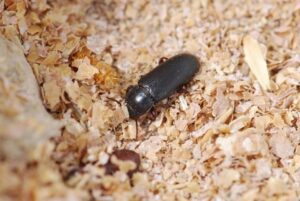
Give Litter Beetles the Boot
Litter beetles. Darkling beetles. Black beetles. Whatever you call them, you know what I’m talking about. They disturb chicks, harbor disease, damage houses, steal food, and cut into profits. They’re everywhere. In every flock. In every house. You know why? They love it. Seriously. They prefer temperatures of 75-95°F. They prefer 12% moisture but will…
Read More
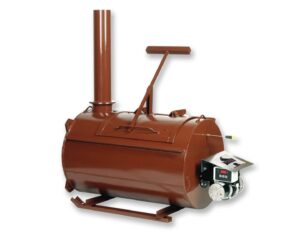
How to Handle Mass Mortality on the Poultry Farm
Do you have a plan in place to handle mass mortality? While we hope that mass mortality is something no one should deal with, it does happen, and it’s good to be prepared. If your farm is infected with a contagious, high mortality disease, dealing with sheer volume can be a challenge. It’s important to…
Read More
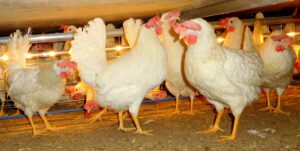
5 Tips to Prevent Floor Eggs
Whether you are raising breeders or layers, floor eggs can become a huge problem. They require more labor to gather, they can be rife with contamination, and they could lead to much larger issues, like egg eating. To keep production up, and effective, we need to give the hens every possible reason to lay their…
Read More
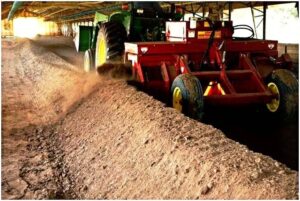
Windrowing for Litter Quality Control
Windrowing allows the natural metabolism of bacteria present in the litter to cause a partial composting process that generates enough heat to destroy many pathogenic bacteria and microorganisms. Litter management between flocks is crucial to ensuring a healthy environment for chicks and will help to reduce potential health problems. Windrowing allows the litter to be…
Read More
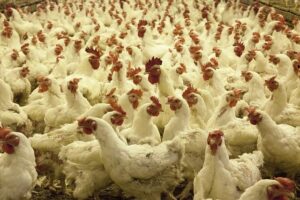
Flock Uniformity in 3 Simple Steps
Flock uniformity is crucial to good performance in a breeder flock. It starts with what and how much a bird eats each day – assuming the feed contains all the proper nutrients, we should focus on delivering the nutrients to each bird equally. A flock uniform in size comes into production better, peaks higher,…
Read More
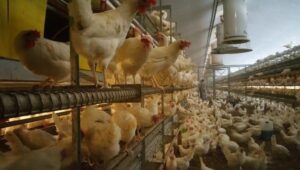
Cage-free Layer Husbandry Best Practices
The switch to cage-free layer housing isn’t a new one, and definitely hasn’t been an easy one. We scoured the internet to compile a list of practices and recommendations to help you meet welfare standards and still maintain healthy, profitable flocks. Feed In cages, feed is wasted when birds overeat from boredom. In cage-free systems,…
Read More
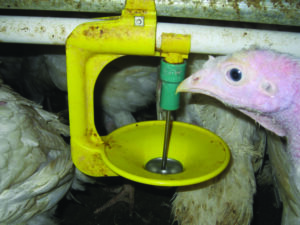
BigTom Turkey Drinkers – Europe Sees the Difference
There are no Thanksgiving and Christmas turkey dinner traditions in the Old World, nevertheless, turkey meat spread its fame and now, there is a number of European countries like Italy, UK, and Poland who are historically holding a lead in EU turkey production and a few new producers like Germany, France, and Spain are gearing…
Read More
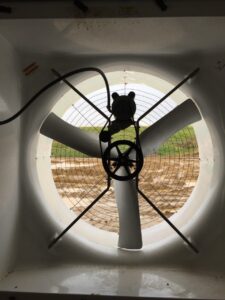
Summer Ventilation Basics Slideshow
We believe in getting back to the basics, and in poultry farming especially, the basics are the best place to start. The summer days may be getting shorter, but the summer heat is only getting hotter, and it's imperative that barns stay cool and birds stay comfortable to avoid heat stress. This short slide show…
Read More

High Pressure Fogging – Another way to keep cool
When we talk about evaporative cooling, most people think first of cool pad systems. Today, however, we want to highlight the less well known but more versatile evaporative cooling that comes from fogging systems. First to clear up a little confusion of terms: Fogging, misting, and sprinklers. Some people use them interchangeably but there is…
Read More
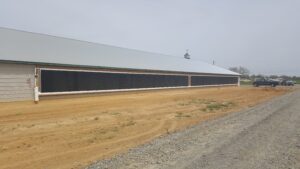
Evaporative Cooling – Make heat stress less stressful
The hottest part of the year can create many challenges for growers, especially those with larger birds. Air speed is the first defense we have against heat stress, but after the outside air gets above the skin temperature of the birds (usually 95°F/35°C), it actually speeds up the discomfort of the bird, rather than alleviating…
Read More
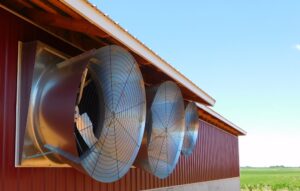
Air Speed – What you need to know
During extremely hot summer months, it’s crucial that we provide chickens with as comfortable an environment as possible to avoid heat stress. Humidity is often much higher during summer months, both inside and out, so we should provide cooler, drier air for birds to find relief. Similar to dogs, chickens don’t have the mechanism to…
Read More
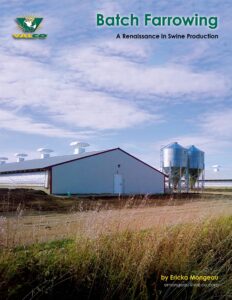
Batch Farrowing: A Renaissance in Swine Production
Commercial swine farming has had a long history, but it’s only more recently we see it beginning to repeat itself. When farming was more concerned with plant crops, farmers kept enough livestock to feed themselves and their neighbors. The pigs were raised with little direct management, left to forage for food, fed leftover scraps and…
Read More
